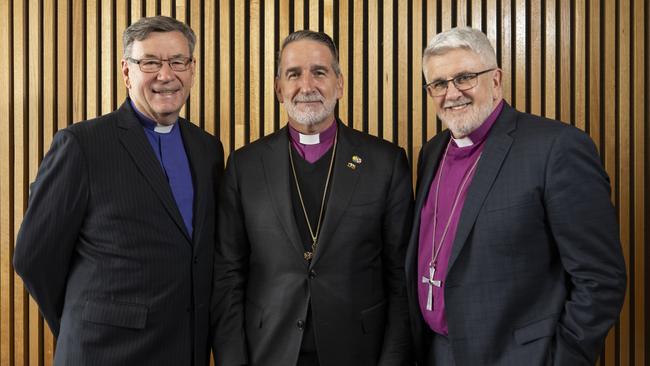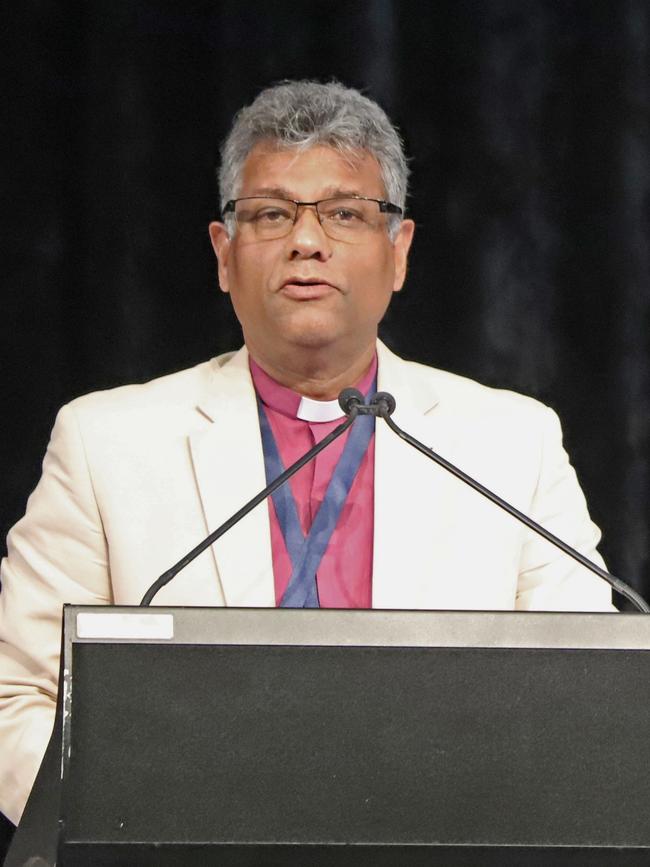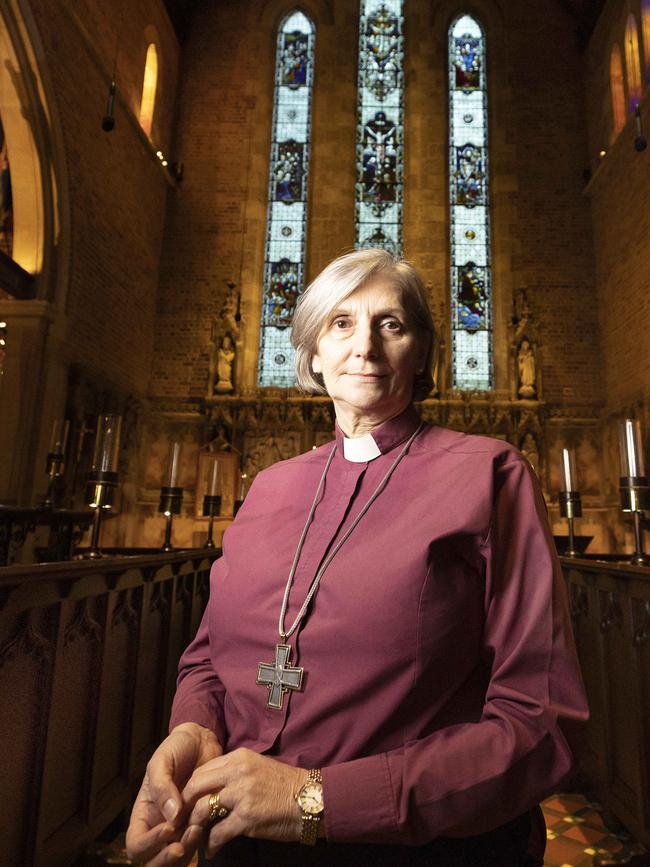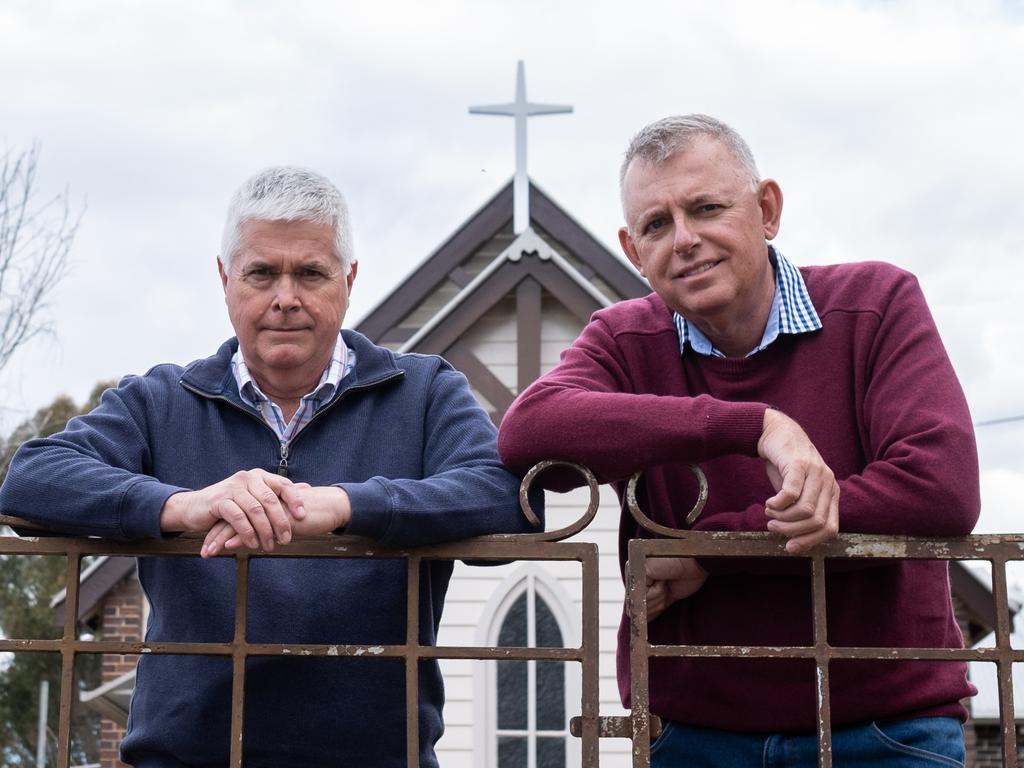Senior Anglicans condemn rebel conservative ‘cult’
Senior Anglicans condemn rebel group that’s broken away from the church as a ‘cult’.

Senior Anglicans have condemned the rebel conservative group that has broken away from the church over same-sex marriage as a “cult” and fear it will be secretly bankrolled by the wealthy Sydney Diocese.
Several Anglican leaders have questioned the role of hardline Sydney Archbishop Kanishka Raffel, who is openly sympathetic to the defectors who created the Diocese of the Southern Cross last week. Anglican Bishop of Ballarat Garry Weatherill told The Australian he “could not imagine” why an Australian diocese would give support to a breakaway group that was urging its members to leave.
“Archbishop Raffel has already indicated his support for the establishment of this breakaway church – I think it puts him in an ambiguous position,” said Bishop Weatherill.
“What each diocese does with their money is really up to them but certainly I won’t be contributing any money towards this organisation,” he said, describing the group’s leaders as “people who read the Bible in a narrow fundamentalist way”.
Retired Anglican bishop of Canberra and Goulburn George Browning likened the rebel group to a cult and said it had no place in the Anglican Church.
“A cult is generally understood to mean a group committed to a particular or singular personality, ideology, or goal; one that distinguishes them from mainstream practice or belief. The recently announced ʹDiocese of the Southern Crossʹ sadly fits this description, notwithstanding their cries to the contrary,” Bishop Browning said in a blog post. “If it quacks like a duck, it is a duck.”
The schism comes after discussions between church progressives and conservatives broke down at the General Synod in May, when the country’s bishops voted down a motion to oppose same-sex marriage blessings.
Former Sydney archbishop Glenn Davies, who was commissioned last week to lead the fledgling movement, said the diocese would “stay true to the Bible’s teachings on sexuality” and reject the “revisionist theology” propagated by progressive archbishops in Adelaide, Melbourne, Brisbane and Perth.
The breakaway diocese will be aligned with the Global Anglican Future Conference (GAFCON), a cluster of conservative churches that sits separate to the Archbishop of Canterbury.
Bishop Browning described GAFCON as “the financial and ideological child of the Diocese of Sydney”.
“In stating its intention to be in communion with GAFCON, this dioceseʹ is asserting accountability to and by itself, sadly another aspect common to all cult-like behaviour,” he said.
Bishop Browning accused Archbishop Raffel of “an absolute contradiction of loyalties and blatant self-interest” for supporting the breakaway group, suggesting he should offer to absolve all NSW bishops of their oath of loyalty to him. Archbishop Raffel shocked moderate church leaders last week when he offered support for the new diocese.

“The Diocese of the Southern Cross is for the sake of those elsewhere who have been forced to leave their church because they cannot in good conscience accept the authority of those who have departed from the teaching of Christ on marriage and human sexuality,” Archbishop Raffel said in a statement. He has refused repeated requests by The Australian for an interview.
A Sydney Diocese spokesman said “no financial support has been given (to) or requested” by the breakaway group.
Perth Archbishop Kay Goldsworthy, who has long disagreed with Archbishop Raffel over same-sex marriage and female clergy, said she had no doubt the Sydney Diocese would financially support the new movement, despite the concerns of senior figures in the church across the country.

“It’s no secret that Sydney gave a lot of money to the ‘no’ campaign in Australia’s same-sex marriage postal survey, and they’ve made similarly strong statements for many years about how they would use their money.”
Anglicans are the second largest Christian denomination in Australia, making up almost 10 per cent of the population, but have suffered the greatest decline of any Christian church, losing more 600,000 members over five years, according to the 2021 census.






To join the conversation, please log in. Don't have an account? Register
Join the conversation, you are commenting as Logout